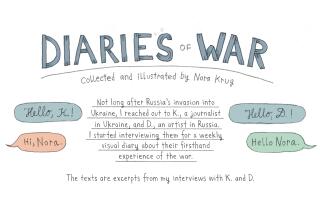The Nurse: ‘I Never Worried That I Would Get Into Trouble’
- Share via
FERTORAKOS, Hungary — Reading between the stilted lines of propaganda was a vital survival skill in Communist Eastern Europe, so Agnes Baltigh swiftly deduced the stunning import of her country’s decision to punch the first hole in the Iron Curtain.
A Hungarian nurse of German descent, Baltigh had lived more than six decades along the Austrian border. She had no desire to flee but decided to help those who did.
“It was just unnatural for Germany to be divided,” says Baltigh, a spry 74-year-old known as Aunt Agi to neighbors and hundreds of East Germans she aided a decade ago. “I never worried that I would get into trouble with the authorities. When they cut the barbed wire, we all knew that was a signal that we could once again think for ourselves.”
Tens of thousands of East Germans funneled through holes in Hungary’s border with Austria after then-Foreign Minister Gyula Horn ceremoniously cut through the barbed-wire fencing near the highway between Vienna and Budapest in May 1989.
It was a gesture intended to signal to Hungarians that they were no longer captives of communism. But it was the East Germans, chafing under the reform-resistant Erich Honecker, who took notice and fled in droves after their summer vacations in Hungary.
Aunt Agi knew safe passages through the swampy border terrain from childhood wanderings. She had the language of her ancestors to talk East Germans around the pitfalls.
She had the heart to let them hide in her garden and shower at her home after days of stealthy maneuvering toward the border. She fed those who had run out of food before they could chance the nighttime crossing.
Of the hundreds of families she helped in 1989, dozens wrote to thank her. One family even sent her train tickets in 1992 to visit them in Hanover. Others come back from time to time to show their children how a sympathetic stranger helped them escape.
Baltigh’s home is now a bed-and-breakfast, patronized by young backpackers and campers from Eastern Europe.
“It makes me happy that the young ones have no recollection of life under the dictators,” she says. “For them, that time is a subject to be studied, like ancient history.”
More to Read
Sign up for Essential California
The most important California stories and recommendations in your inbox every morning.
You may occasionally receive promotional content from the Los Angeles Times.











